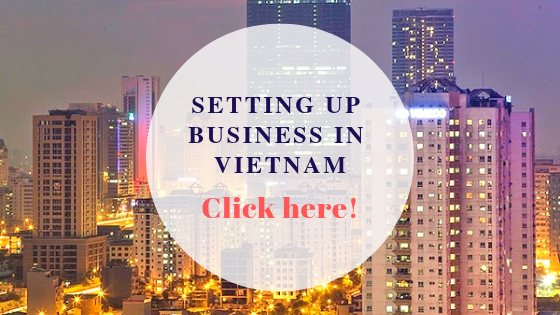Investment projects in Vietnam could be evaluated and approved for business setting-up at top level of the government, at ministerial levels or at the provincial levels.
The licensing authorities for business setting up in Vietnam has been divided to distribute workloads at different state agencies with aim to speed up the process and attract more quality investment projects in Vietnam.
In practice, the process for establishing companies or executing investment projects in Vietnam would take from one month for simple project, three to six month for areas categorized under conditional investment areas, requiring sub-licenses, or additional time for more complicated projects. At the provincial levels, there might be inconsistency between cities and provinces due to different interpretation of laws. For investment project with difficulty to manage, the provincial levels would need to consult with technical department of central government agencies, as such the time taken to process the investment certificate would be lengthen.
Understanding the mechanism and the work division of Vietnam authorities that evaluate and approve business licensing at different government agencies would help foreign investors to smoothen the process and improve their experience in Vietnam.
It is notable that, the government level will be focusing on significant projects, in special area at large investment capital with impact on social economic situations. Most of the investment licensing procedures will be carried out at the provincial levels where the investment projects exist.
The following will point out directions for foreigners to approach respective agencies based on the particular area of interests, scale, and nature of the investment. However, to avoid delay and increase effectiveness, it is advisable that the foreign clients would consult with Vietnam law firms to help advise and represent them in preparing and executing the investment in Vietnam.
I. Projects evaluated and granted investment licensing at government level
Depending on the business nature, industry sector, investment scale, and investment policy, the Vietnam Prime Minister, on behalf of the government will evaluate and approve investment licensing for setting up business.
1. The investment project in Vietnam the government will evaluate and approve regardless of funding, the scale of investment are in the following areas:
a) Development and commercialization of airports and air transport;
b) Development and commercialization of national port;
c) Exploration, mining and processing of oil and gas; exploration and exploitation of minerals;
d) Radio, television;
e) Casino;
f) Production of cigarettes;
g) Establishment of university level educational institute;
h) Establishment of industrial zones, export processing zones, high-tech zones and economic zones.
2. Although investment projects which do not fall under the cases listed above, but the government of Vietnam also evaluates and approves investment project with investment capital of VND 1,500 billion (around USD 75 mil) upwards regardless of funding and in the following areas:
a) Sales of electricity, mineral processing, metallurgical;
b) Construction of railway infrastructure, roads, inland waterways;
c) Production, sales of wine and beer.
3. Further, the government of Vietnam also evaluates and approve investment projects with foreign investment in the following areas:
a) Maritime transport;
b) Establishment of networks and provision of postal services, courier, telecommunication and internet; network setup and signal transmission;
c) Printing and distribution of newspapers; publication;
d) Establishment of independent scientific research.
4. Where the investment projects specified in the above cases are in the plan which the Prime Minister has approved or authorized other agencies to approve, and that the investment projects meet the conditions prescribed by law and treaties to which Vietnam Nam is a member, the agency granted investment certificates perform the procedure for issuance of investment certificates is not required to submit to the Prime Minister to decide on the investment policy.
5. Where the investment projects specified in the above case is not in the plan which has been approved by the Vietnam Prime Minister or authorized other agency to approve, and that the projects do not meet the conditions for market access provisions in international treaties which Vietnam is a member, the agency granted investment certificates shall consult with other of relevant industries and submit to the Prime Minister for investment policy decision.
II. Projects evaluated and granted investment licensing at ministerial level
1. The Vietnam Ministry of Planning and Investment shall evaluate and approve licensing for investment projects in the form of BOT, BTO, BT.
2. Other ministries will be evaluating and granting license for investment in some sectors.
a.Vietnam Ministry of Commerce and Industry shall evaluate and approve licensing for investment project in oil and gas sector;
b. Vietnam State Bank shall grant licensing for financial institutions;
c. Vietnam Ministry of Finance shall be responsible for issuing license for investment project of insurance business.
III. Projects evaluated and granted investment licensing at provincial levels
1. Department of Planning and Investment shall be the single point of contact that receive the application and evaluate the investment plan of the foreign investors wishing to establish business in Vietnam for projects
a. Outside of Industrial Zone, Industrial Processing Zone;
b. Infrastructure development project for Industrial Zone, Industrial Processing Zone which management board of industrial zone and industrial processing zone are not yet established.
2. The management board of Industrial Zone, and Industrial Processing Zone:
a. For investment projects within the Industrial Zone, and Industrial Processing Zone which are not under the authority of the Prime Minister;
b. Infrastructure development project to for industrial zone and industrial processing zone.



















